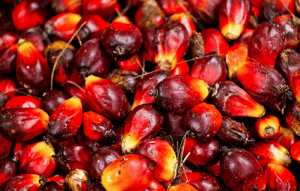Oil palm industry stakeholders discuss sustainable production
 A meeting of oil palm industry stakeholders agreed that with the appropriate support and investment the Africa continent could revive the dwindling fortunes of its palm oil industry.
A meeting of oil palm industry stakeholders agreed that with the appropriate support and investment the Africa continent could revive the dwindling fortunes of its palm oil industry.
At a day’s forum organized by Solidaridad West Africa and Proforest, with the support of the Roundtable on Sustainable Palm Oil (RSPO), the stakeholders were optimistic that with the significant investment in the past years, Africa was in good position to tap into the global palm oil market.
The event, on the theme: “Sustainable Palm Oil in Africa: Getting it Right from the Start,” will bring together oil palm growers, civil society organisations, financial institutions, development partners, governments and key experts to share knowledge and experiences in oil palm value chain.
Solidaridad West Africa and Proforest are non-governmental organisations that support the sustainable development of farmers and production systems in West Africa, through the enhancement of value chains of fresh and processed agricultural commodities.
Africa has seen significant investments in the oil palm sector over the past decade. These include new plantation establishment, rehabilitation of abandoned and derelict plantations, investments in more efficient mills and refineries as well as innovative smallholder initiatives.
The growing oil palm sector could contribute significantly to economic development and help alleviate rural poverty. At the same time, the expanding sector could come with significant social and environmental impacts, unless adequate safeguards are put in place.
Mr Fifi Kwetey, Minister for Food and Agriculture said for Africa to remain competitive in the rapidly changing palm oil market, there was the need for conscientious efforts by all players to mainstream sustainability into palm oil production and supply chain.
He said small growers and artisanal millers, who contribute about 80 percent of Africa’s total annual output, must be repositioned to play their roles in a more sustainable manner.
The Minister said the forum would offer stakeholders a common platform to share experiences and ideas to address the challenges in the sector and chart a common path towards achieving sustainability.
Ghana and other African countries including Nigeria, Cameroon, Coe d’Ivoire, Gabon and Liberia are also part of the Tropical Forest Alliance 2020 (TFA 2020) initiative, aimed at promoting a prosperous palm oil industry, which brings jobs and wealth to local communities.
Though the Roundtable is still relatively new in Africa, many growers are beginning to adopt the best practice guidelines contained in the standard.
The RSPO provides an opportunity to address the social and environmental impacts of oil palm production.
Mr Delle Kpebessan, Regional Programme Manager Solidaridad, said governmentS in Africa must create the enabling environment to revive the oil palm industry.
He said with best management practices, yields could increase from the average of 2.5 tonnes per hectare to between 20 tonnes and 25 tonnes per hectare.
Source: GNA
